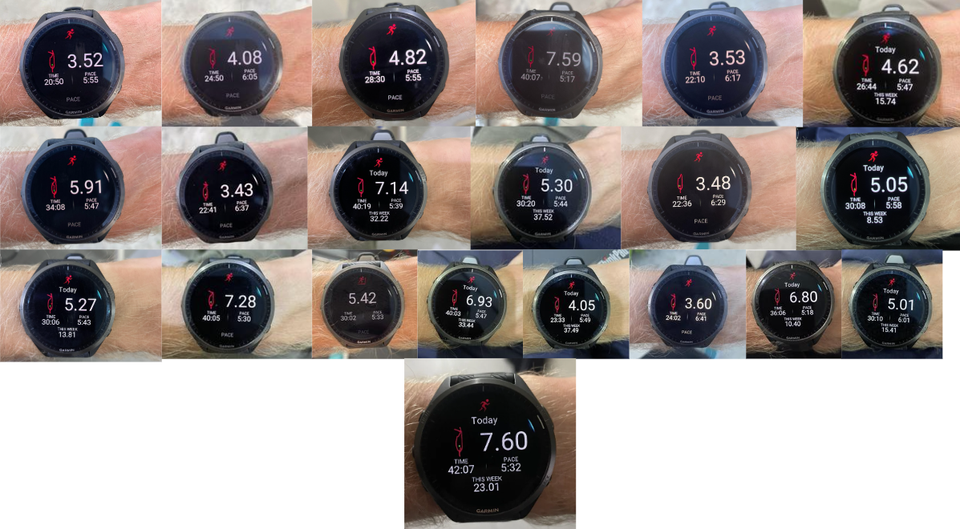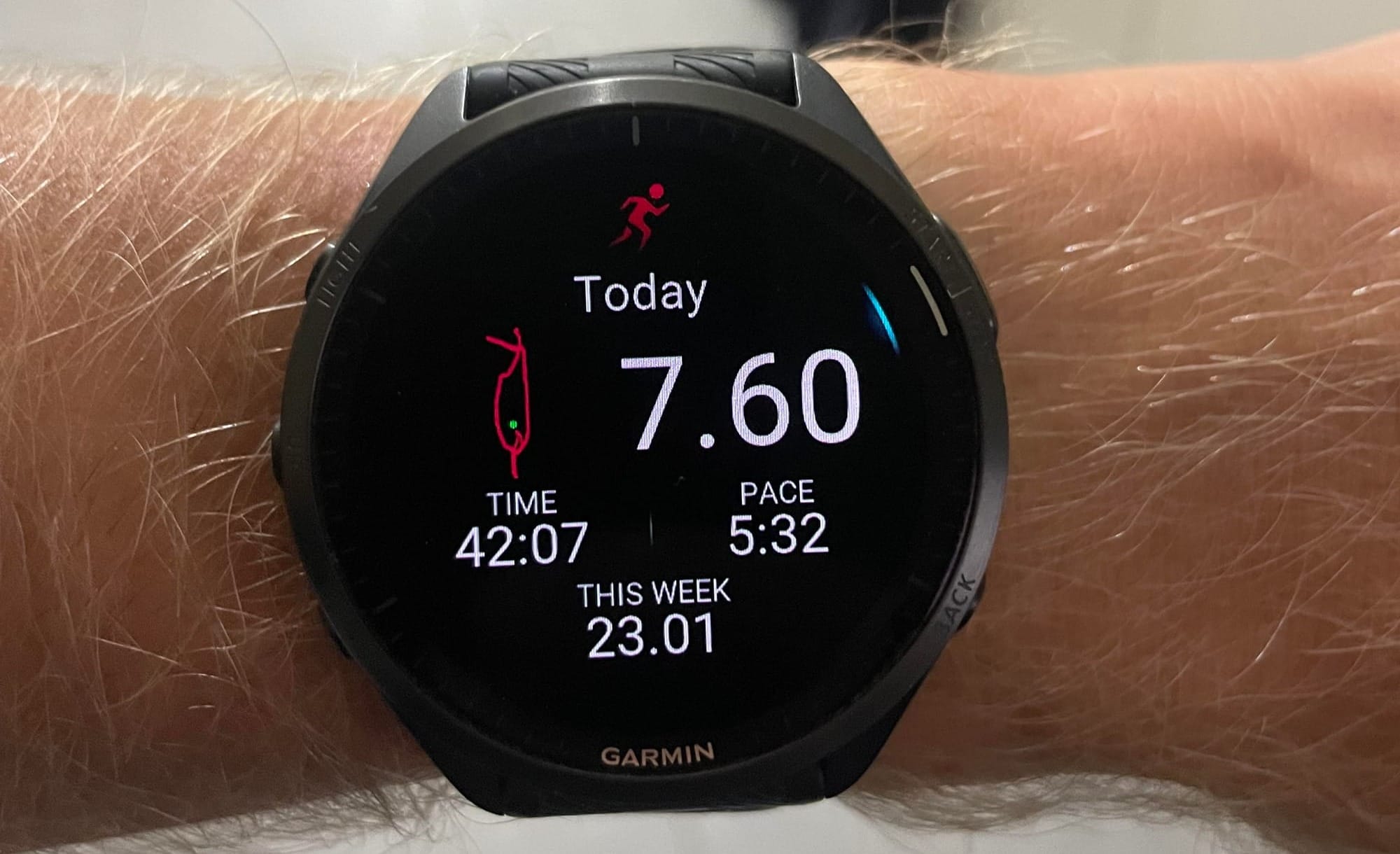Day 21: Early Tempo Run 💹

This morning I dad a 10-minute warm-up, followed by three blocks of 6 minutes at a target pace of 4:40/km, with 2-minute recovery jogs in between. I wrapped it up with a 10-minute cool-down.
To be honest, I wasn’t feeling great today. During the threshold intervals, my pace was off, averaging 4:54 per kilometer. It wasn’t my best, but I pushed through. Here’s a breakdown of my splits:
- Block 1: 5:02/km
- Block 2: 4:52/km
- Block 3: 4:50/km

I wasn’t glued to my watch during the run—I try to go by feel. Occasionally, though, I’ll glance at it to gauge where I am. With experience, you get to know your body and pacing better, and today was a reminder that some days are just tougher than others.
Still, I’m happy with the session overall. It was a solid effort: 42 minutes of work and 7.6 kilometers covered. All progress counts, even on the off days.
Today’s Stats
- Distance: 7.6 km
- Total Time: 42:07
- Average Pace: 5:32/km
- Sleep Score: 69 (7:35 hours)
- VO2 Max: 53
- Endurance Score: 6,237
I’ve been following one of the suggested workouts from Garmin’s Coach feature. I’ve noticed the recommendations are improving as I log more runs. Early on, it felt like the algorithm overemphasized recovery, suggesting rest days after a single long session. But now, it’s tailoring sessions that align better with how I’m feeling and what I need to balance effort and rest.
For someone running repetitive loops on a small island, having these automated suggestions saves mental effort. I’m not training for anything specific right now—serious planning will come next year—so it’s easy to say “yes” to a suggested workout and trust the process.
Today’s Tip
I came across a great idea from Jesse Itzler, an entrepreneur and runner. think of your productivity in terms of weeks, not days. This mindset increases your odds of success because so often, life derails even the best-laid plans.
For example, if your goal is to run 5 miles every day and you miss a day, you’ve failed. But if your goal is to run 35 miles in a week, missing a single day doesn’t break the streak. You can spread those missed miles over the remaining days and still hit your target—no problem.
By shrinking a 365-day mindset into 52 weeks, you give yourself flexibility and resilience in your planning. Itzler explains this doesn’t mean ditching a daily plan altogether. He sets up what he wants to achieve for the week on Sunday night and attacks it steadily over the course of the week.
It’s about consistency over perfection—and it applies to more than just running.
PEACE, PACE
